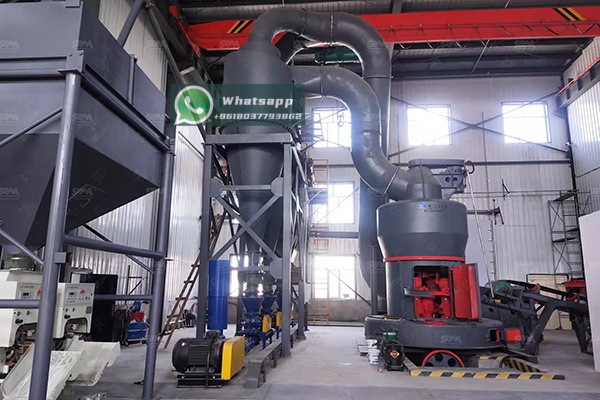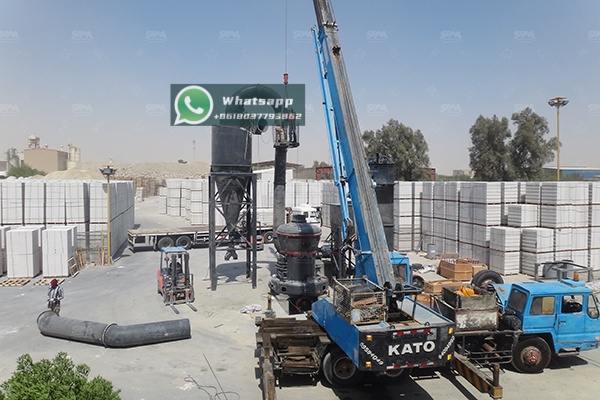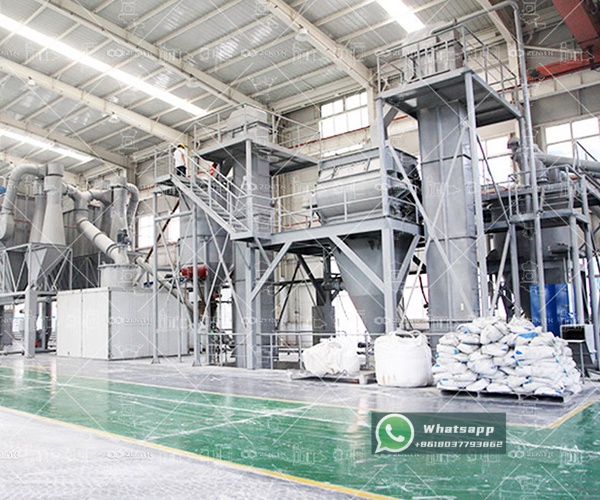The food packaging industry is undergoing a significant transformation, driven by consumer demand for safer, more sustainable, and higher-performing materials. At the heart of this evolution lies the strategic use of functional fillers, with ultrafine calcium carbonate (UF-CaCO3) emerging as a critical component. This naturally occurring mineral, when processed to micron and sub-micron levels, imparts a remarkable range of benefits to polymers like polypropylene (PP) and polyethylene (PE), which are ubiquitous in food packaging applications. This article explores the pivotal role of ultrafine calcium carbonate, the technological demands for its production, and how advanced grinding machinery from industry leaders like Shanghai Zenith Machinery is enabling this innovation.

Calcium carbonate has long been used as a cost-effective filler in plastics. However, the shift to ultrafine grades has transformed it from a simple extender into a high-performance additive. The extremely small particle size, typically ranging from 0.5 to 2 microns, and a narrow particle size distribution are the keys to its functionality. When incorporated into polymer matrices, UF-CaCO3 delivers a suite of advantages essential for food-grade packaging:
Producing calcium carbonate suitable for direct contact with food requires stringent control over every stage of processing. The raw material must be of high purity, with low levels of heavy metals and other contaminants. The primary challenge, however, lies in the grinding process. Achieving a consistent, ultrafine powder with a controlled top cut (ensuring no large particles are present) demands precision engineering. Key technological requirements include:

Meeting the exacting standards of the food-grade packaging industry requires reliable and advanced grinding technology. Shanghai Zenith Machinery Co., Ltd., a leading manufacturer of ore grinding equipment, has developed a range of mills perfectly suited for producing ultrafine calcium carbonate. Their expertise in ultra-fine powder grinding is evident in machines that offer high efficiency, precise control, and robust construction.
For producers aiming for the highest levels of fineness and production capacity, Zenith’s LUM Ultrafine Vertical Mill represents a top-tier solution. This mill integrates grinding, drying, classifying, and conveying into a single, compact unit. Its innovative design is ideal for achieving the narrow particle size distributions required for high-performance fillers.
| Model | Main Machine Power (kW) | Capacity (t/h) | Size Distribution D97 (μm) |
|---|---|---|---|
| LUM1125 | 90-110 | 0.7-5.5 | 5-30 |
| LUM1436 | 160-200 | 1.2-9.5 | |
| LUM2153 | 450-500 | 3.5-22 |
Another excellent option from Zenith’s portfolio is the XZM Ultrafine Grinding Mill. This mill is widely recognized for its ability to produce superfine powder, with an output fineness that can be adjusted between 325 to 2500 mesh. It is particularly suitable for grinding medium-hard and soft materials like calcium carbonate, making it a versatile and popular choice.
| Model | Working Diameter (mm) | Max Feed Size (mm) | Final Size (mesh) | Output (kg/h) |
|---|---|---|---|---|
| XZM221 | Φ800 | ≤20 | 325-2500 | 500-4500 |
| XZM268 | Φ1680 | ≤20 | 5000-25000 |
Both the LUM and XZM series mills feature advanced control systems that allow for precise adjustment of operational parameters, ensuring consistent product quality batch after batch. Their energy-efficient designs also help producers minimize their environmental impact and operational costs.
The integration of ultrafine calcium carbonate is a proven strategy for enhancing the performance, sustainability, and economics of food-grade packaging. The success of this integration is fundamentally dependent on the availability of high-quality UF-CaCO3, which in turn relies on state-of-the-art grinding technology. Manufacturers like Shanghai Zenith Machinery provide the essential industrial backbone with their high-performance grinding mills, such as the LUM Ultrafine Vertical Mill and XZM Ultrafine Grinding Mill. By partnering with equipment providers that offer reliability, precision, and efficiency, calcium carbonate producers and packaging manufacturers can together meet the growing demands of the global food industry, creating safer, smarter, and more sustainable packaging solutions for the future.
